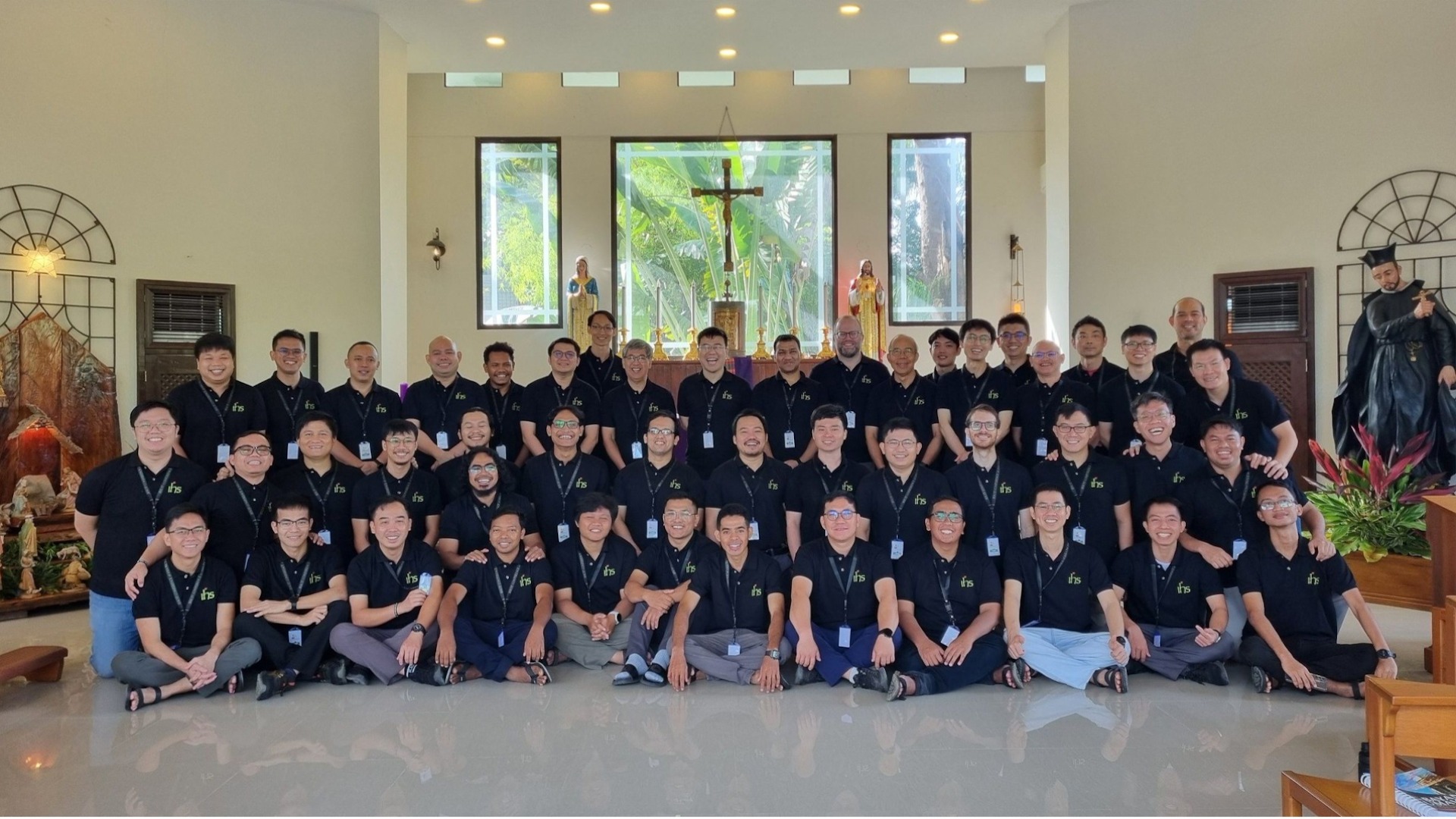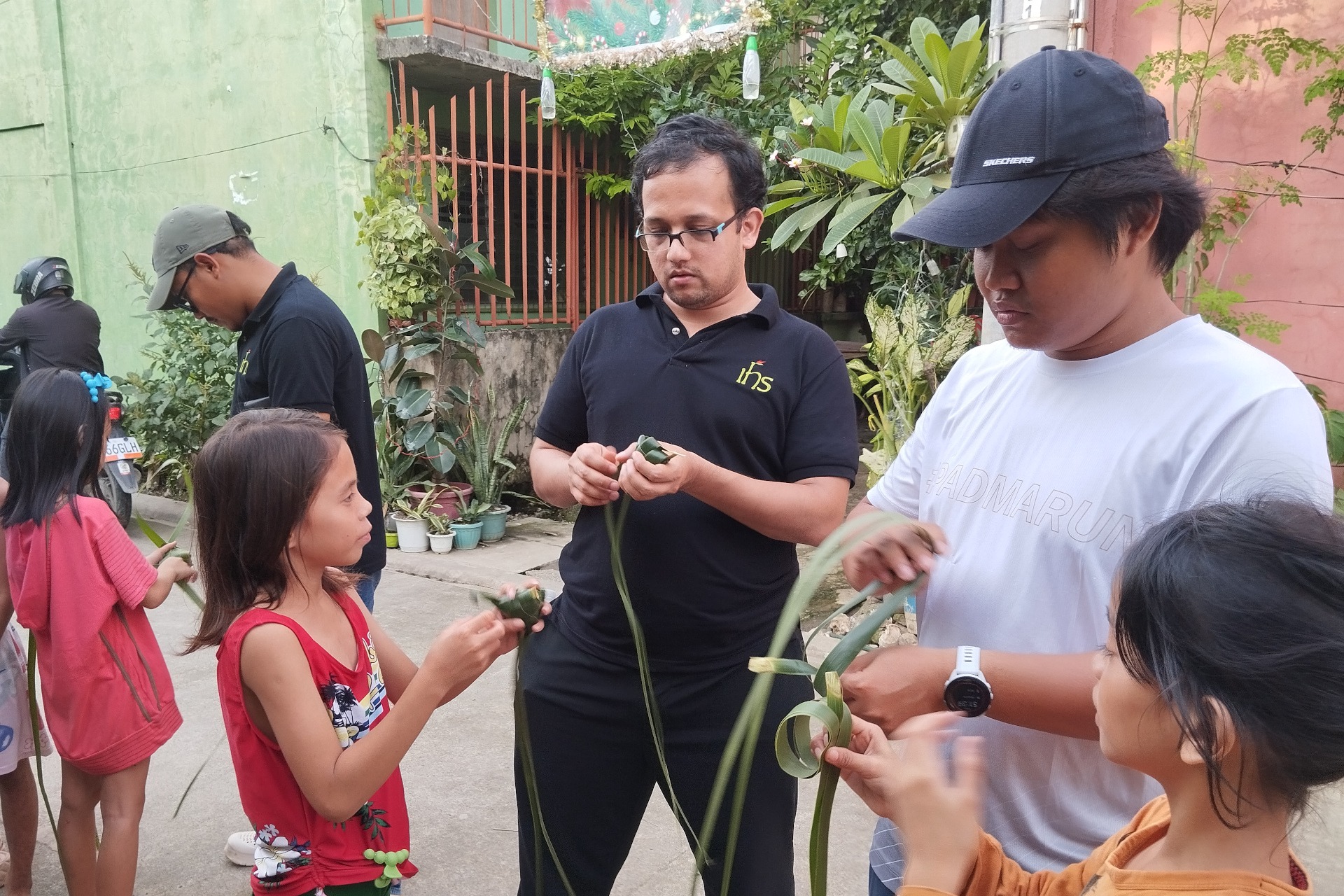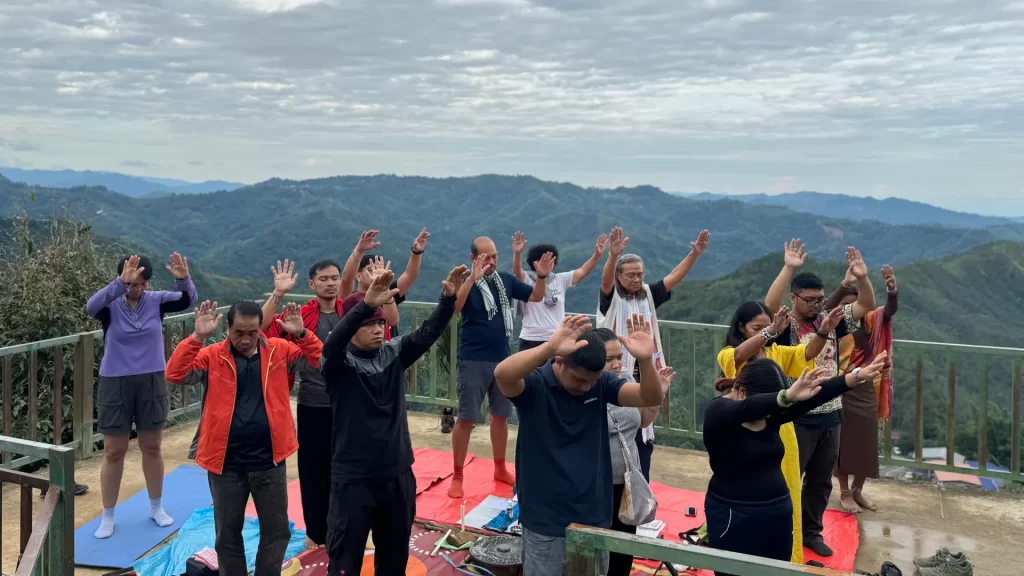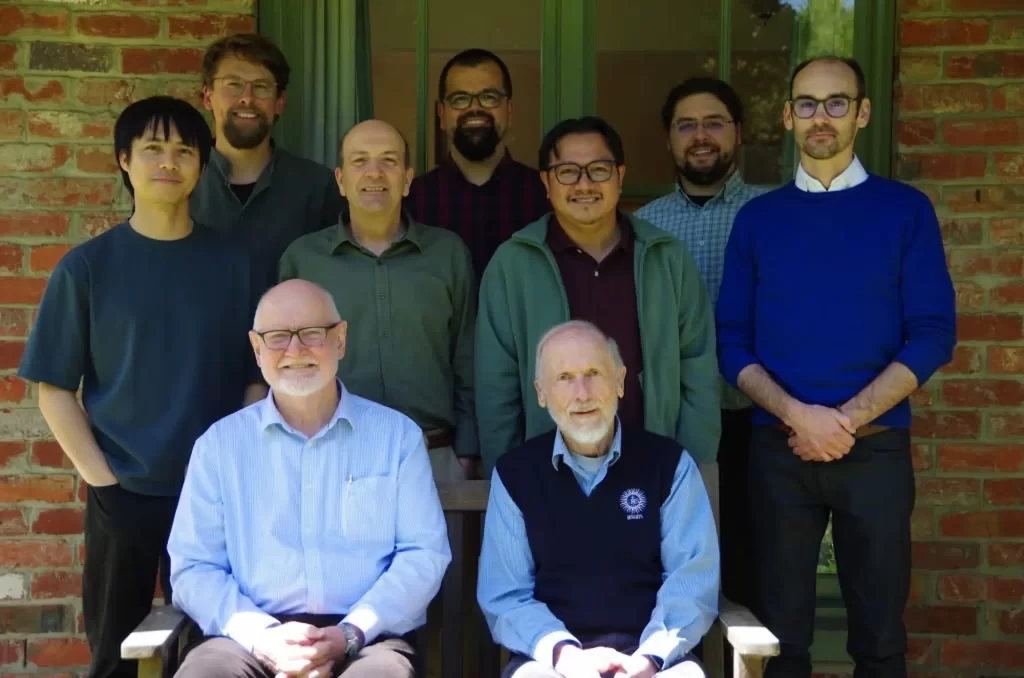
Of the 50 participants, including formands from 14 different provinces and mission areas, two Jesuits were from outside our Jesuit Conference of Asia Pacific (JCAP) undergoing formation in the Philippines: one from the USA-West Province and the other from the Euro-Mediterranean Province. In addition, three Indian Jesuits are missioned outside their home provinces—two in Japan and one in Cambodia—and four Vietnamese Jesuits are serving in Taiwan, Myanmar, Korea, and Thailand, while an Indonesian Jesuit is missioned to Micronesia. This aspect of international mission aligned with the meeting’s theme, which centred on migration.
The theme, “Navigating Change: Migration Dynamics in the Asia-Pacific and the Philippine Experience,” was chosen to raise awareness among Jesuit scholastics and brothers about the Society’s social apostolate with migrants and refugees. We engaged in a social analysis workshop, listened to personal stories of serving the marginalised, and spent the night in a migrant household. Alongside these experiences, we fostered friendships with different nationalities, explored the beautiful city of Cebu and its historical landmarks, and enjoyed much-needed rest after a semester of studies.
The migration crisis is close to the heart of Pope Francis, who, from the very beginning of his papacy, has expressed his solidarity with the plight and cause of migrants. In her talk, Julie Edwards, JCAP Secretary for Social Ministries, emphasised that serving the marginalised and promoting justice are deeply embedded in the Ignatian DNA. St Ignatius of Loyola established the Society to “help souls,” and there is no need to start from scratch. Fr Roberto Jaramillo SJ, Secretary for Social Justice and Ecology, reminded us that without spiritual depth, our mission risks becoming ideologically driven. He further noted that as Jesuits, we must be evangelised and transformed by the way the poor live and experience Jesus of Nazareth.
In the context of our conference, Fr Jun Nakai SJ, Coordinator of the JCAP Migrants and Refugees Network, shared his personal experiences of building bridges and networking towards the vision “to build a just, safe, and inclusive world for and with migrants, refugees, and internally displaced persons”. I was moved when he said that, often, we don’t see the immediate results of our efforts, but we continue to serve despite the challenges and misunderstandings. Louie Bacomo of JRS Asia Pacific discussed the connection between migration and climate displacement, highlighting how the Church focuses on the vulnerability of migrants, rather than simply categorising them. Fr Gabriel Lamug-Nañawa SJ, Philippine Province Assistant for Ecology and JCAP Coordinator for Reconciliation with Creation, underscored the importance of both systems thinking and collaboration with mission partners in a globalised world, where issues are becoming increasingly complex and interconnected. Another enriching session was the personal stories of a few Jesuits, who related their consolations and challenges serving in the social ministries in their respective provinces.

I am grateful for the SBC meeting. Being with my Jesuit brothers reminded me of our common mission of following the poor and humble Christ, who dedicated himself to the Reign of God. Listening to each other’s experiences moved me to contribute to the social mission of the Jesuits in my own way. I am particularly inspired by the reflection given by Fr Rogelio K Bag-ao SVD, the provincial superior of the Southern province, on expanding one’s horizons through immersion, faithfulness to one’s identity as a missionary, and incarnating Christ in one’s presence.







